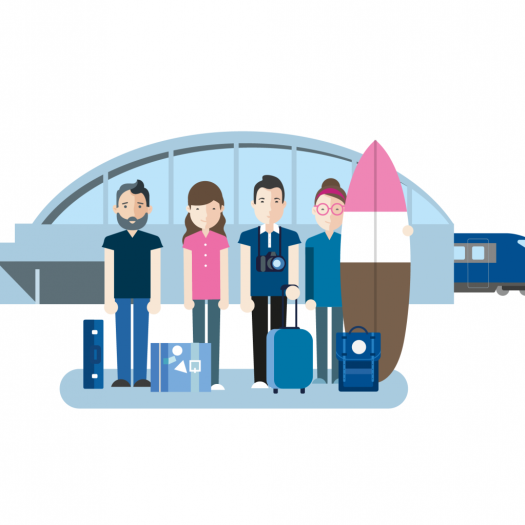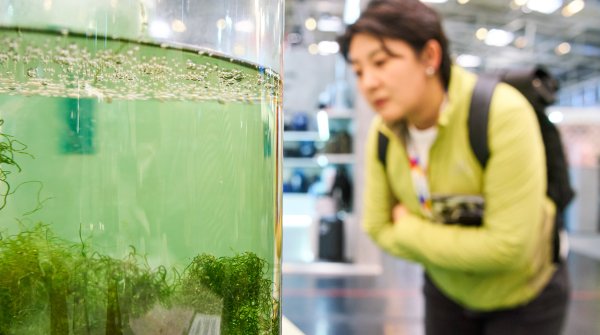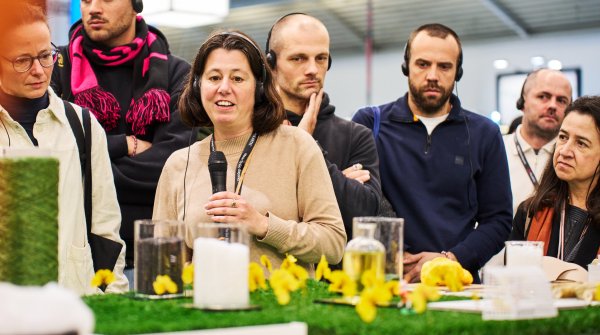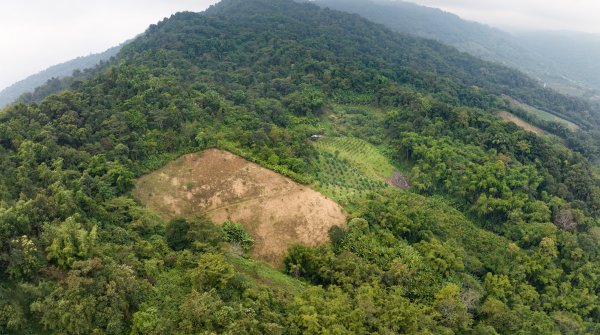The amount of CO2 we emit per person-kilometer varies greatly from one mode of transportation to the next. What can we do to keep our greenhouse gas emissions on the road as low as possible, but not lose the fun factor? It's actually not that hard. Even by making small changes toward a more conscious lifestyle, we can all become active in the global climate protection project. So get going!
The ultimate goal of sustainable mobility is the efficient use of means of transport to produce as little CO2 as possible. The actual approach behind the whole thing pursues the goal of relieving the environment through fewer emissions and reducing individual traffic, i.e. the use of private cars. It also aims to ensure the preservation of habitats.
If you prefer the train or the city bus to your car, it's good for the climate. Compared to a private car, you save up to 70% of CO2 emissions for the same distance. Of course, a bicycle is also a good way to get from A to B. Cycling is not only good for the environment, it also generates less noise emissions, is even cheaper than public transport and also improves your own fitness. A clear win-win situation.
Berlin, Venice, Amsterdam and Vienna are easily accessible by night train. There is also a wide range of long-distance travel options by coach or long-distance train. In Europe in particular, air travel can be easily avoided. This also pays off for the climate.
Off-roaders are out. The bigger and heavier the car, the higher the fuel consumption and the higher the CO2 emissions. We therefore recommend paying attention to a car's emission values when buying it. Electric cars have significantly lower emissions than vehicles powered by fossil fuels when used for many years (varies by electricity mix).
The car becomes less of a problem if you share it with others or carpool. One car can easily transport four to five people, which saves quite a bit of CO2. If five people travel 100 kilometers a day and carpool, the daily CO2 savings per person is about 15 to 20 kilograms!
In almost every village / town there is a small store that offers regional products. This has two advantages: First, regional products are healthier and are produced in a more environmentally friendly way. In addition, such stores are often accessible without a car or they are at least closer than the nearest supermarket.
And even if there is "only" the supermarket: Many city dwellers can easily go shopping on foot, which is also an environmentally friendly alternative.
- Noise protection: High traffic loads in cities cause noise pollution for residents. Rail traffic, on the other hand, is quiet and does not cause any disturbance. The use of bicycles also does not cause unpleasant noise.
- Quality of life: The noise as well as the high CO2 emissions caused by car traffic limit the quality of life in cities.
- Health: Cars emit exhaust gases into the air every day, which are also not harmless for health, especially for people with chronic lung diseases.
- Protecting natural areas: Less car traffic also means that fewer green spaces are converted to roads. This ultimately benefits nature.
- Climate protection: Our climate is the reason why sustainable mobility is coming into focus in the first place. More than 20 percent of CO2 emissions are caused by car traffic, and that has to change.
We are undergoing a structural change. There are more and more offers for sustainable mobility and, due to the expansion of public transport options, we are also less dependent on cars. But for many people this is a challenge, because not everyone is independent of their car and some vacation destinations can only be reached by plane.
In the end, it's all a question of priorities. You can already reduce your emissions budget if you only go shopping once a week. And flights can also be easily replaced, because there are countless beautiful vacation destinations with train connections. And if you go on vacation by train, you can also use a rental car with a clear conscience to get to know the beautiful sides of your vacation destination.
- ISPO awards
- Mountain sports
- Bike
- Design
- Retail
- Fitness
- Health
- ISPO Job Market
- ISPO Munich
- ISPO Shanghai
- Running
- Brands
- Sustainability
- Olympia
- OutDoor
- Promotion
- Sports Business
- ISPO Textrends
- Triathlon
- Water sports
- Winter sports
- eSports
- SportsTech
- OutDoor by ISPO
- Heroes
- Transformation
- Sport Fashion
- Urban Culture
- Challenges of a CEO
- Trade fairs
- Sports
- Find the Balance
- Product reviews
- Newsletter Exclusive Area
- Magazine




